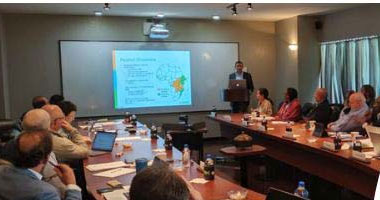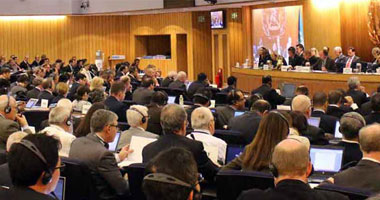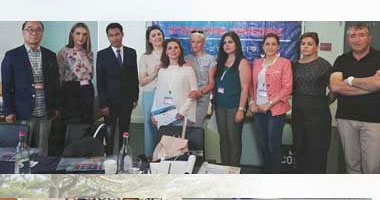The Need for Convivial Design in the Age of Technological Transformation

Brandon Sapsara,
Entrepreneur, Systems-Thinker
Blockchain Enthusiast.
Conviviality is defined by renown Austrian priest Ivan Illich as individual freedom realized through greater autonomy and personal interdependence. Principals which depend on individual self-sufficiency, human collaboration and connectivity (Illich, 1973). It is the opposite of mainstream view and westernized industrial capitalism. Arguably an unsustainable system based on principals of perpetual consumption at the disposal of energy and finite resources.
To illustrate capitalism, many of us are familiar with the current model of the global industrialized economy. A vacuum cleaner today is produced in a plastic injection-molding plant in China, then shipped to the U.S.A. for packaging and assembly before being shipped again to various retail distribution outlets. The resulting energy spent not only producing the product but also in transporting it many times before it reaches the homeowner's closet. Lastly, this device is plugged in and continues to consume energy for the lifetime of its use at which point it is then set on a curb and transported to a landfill where it will finally lay rest and continue to release toxins and CO2 into the atmosphere for hundreds of years.
Enter the Fuller Brush Man. Aside from being the butt of many American pop culture jokes, the Fuller Brush Man was a traveling peddler as early as the American Colonies. Self-sufficiency was an American value at the time and so Mr. Fuller made his high-quality brushes by hand in the basement of his sister's house. Products were peddled and sold door-to-door by salespersons. Once the tools reached the owner, they required no energy, other than the energy exerted by its owner during use. Once the brush was cleaned, it could be used over again until the product reached its wear life at which point it could be rebristled, repurposed, or thrown away.
The point to emphasize with the Fuller Brush Man example is that we already have all of the energy within ourselves to create value and lead convivial lives without the need to expend vast amounts of energy. Additionally, we have the capacity to design for continued use within industrial product life cycles as well as the capability to design for reducing the energy spent over the life cycle of a product. Presently, we need to be designing tools for conviviality so that our tools address the needs of the underlying social, cultural, economic, and collective issues we face as a society. This is especially true for tools which bring about technological advancements. It means we need to be collectively driving for excellence, not arguing about the structure of self-limiting expectations. This is not to say that everyone needs to give up their cars and start singing "Kumbaya." It simply means we need to care more, learn how to ask better questions, and listen more carefully to one another.
The questions we need to be asking should guide a wider discussion about human values based on the nature of being and of our shared principals based on truths of 'what is' in the world. For example, to what extent do we want machines to do our work for us? At what point does the expansion of computing power consume energy beyond our ability to extract and produce it? To what extent does decentralization invert our current societal structure even beyond its limits today to where it inhibits community decision making? Where do we draw the line on consensus decision-making before it potentially limits the power of the individual to influence the herd? These questions are important to ask and it should be more alarming to a greater number of people in America today that they are not being brought about in public discourse by our higher academic, government, or other leading institutions.
The relationship of technology to society as a whole is complex, yet that relationship is being constantly redefined over again within a world proliferated with ubiquitous knowledge and driven by perpetual prevalent use of technological tools. These tools demand our money, time, attention, energy, and resources, therefore, just like the Fuller Brush man, they warrant careful thought and design when it comes to their subsequent creation, deployment and widespread use. Alternatively, as we have seen throughout history, we can become subservient to our tools. Perhaps maybe even more than we are willing to admit at present. Maybe the most important question is how can we impose limits on our tools to prevent them from overextending ourselves at the expense of our own joy, livelihood, and ability to recognize our own natural environment.
Imagine a world if we designed every tool to expend only the minimum amount of energy it required to do its job. Imagine a world where we constantly invited creativity instead of shunned it—one where we integrated the best of all our ideas all the time-(simplification, consistency, balance, flexibility, aesthetic appeal). Suppose a place where communities are built upon the backs of transparency, openness, sharedness, and stability. When we design with conviviality, we design with these principals in mind. When we design with conviviality, we open the door to possibilities that increase freedom, autonomy, and ultimately enhance our lives and the lives of those around us. Many problems we face today simply might not exist if we approached, maintained, and designed our tools while keeping conviviality as the central tenant of a shared ideology for the greater good of humanity.
Subscribe to Industry Era
News
This Apple Watch Case Could Kill All of Those Wannabe AI Devices
Google defends AI search results after they told us to put glue on pizza
Google scales back AI search answers after it told users to eat glue
FAA won't approve increased 737 Max production in near future
Thursday was a sour day for the US economy — with an important silver lining
OPEC+ working on complex production cut deal for 2024-2025, sources say
Stock futures inch lower as investors review earnings, brace for inflation report: Live updates
Salesforce Shares Plunge by Most Since 2008 After Weak Outlook
Jeep’s Wagoneer S Trailhawk concept teases a fully electric off-roader
Gap’s stock jumps 23% as the retailer swings to profit and raises guidance
Medline recalls 1.5 million bed rails linked to deaths of 2 women
Oil falls as Fed policymakers look to maintain rate cuts, gasoline stocks rise










